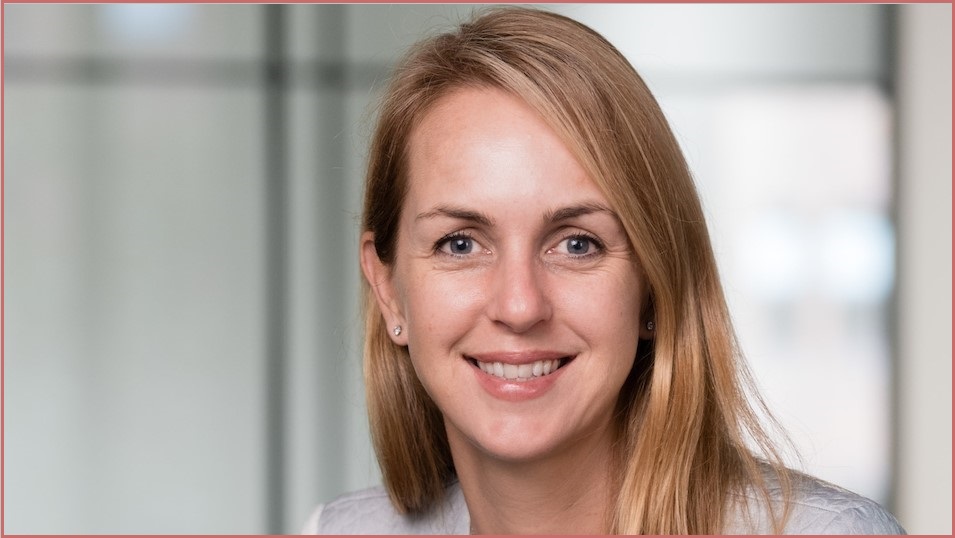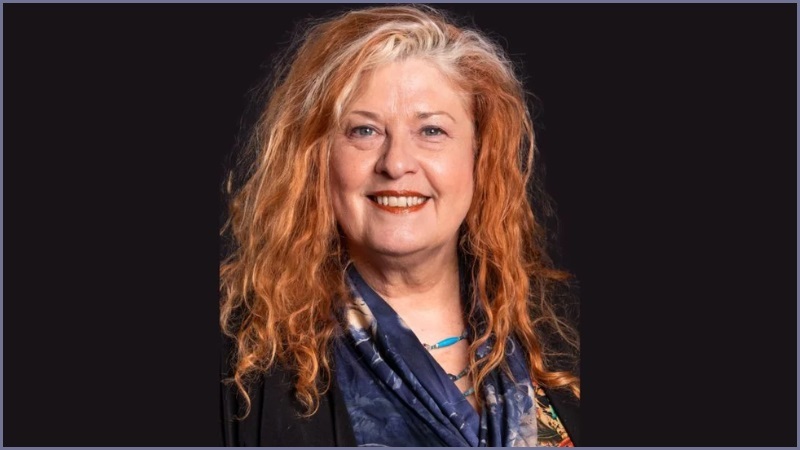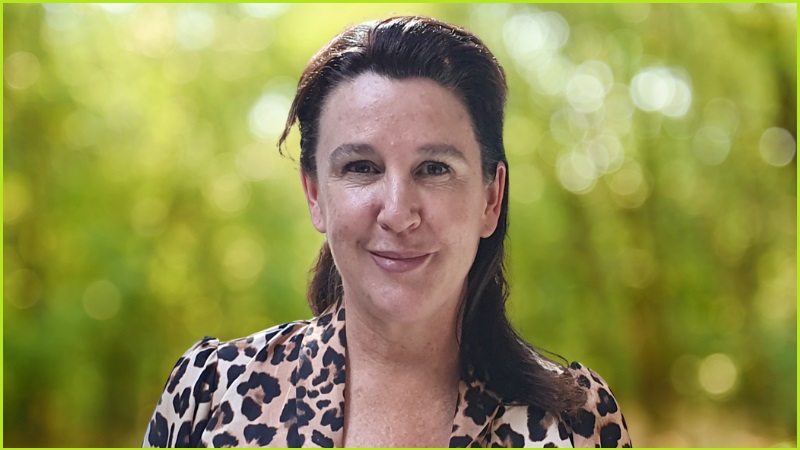Although gender equality is clearly on the agenda in Australian workplaces, with 90 per cent of employers having a policy or strategy to support it, the numbers are still poor.
Only one in four CEOs or head of businesses are women.
There’s still a significant gap; progress is not parity.
This year, the official theme of the UN Women’s International Women’s Day is: ‘For ALL women and girls: Rights. Equality. Empowerment.’
Women still encounter challenges in advancing within the workplace, with many remaining in entry-level roles and facing difficulties in attaining or retaining senior leadership positions.
Ahead of this IWD, which is marked annually on 8 March, we reflect on the experiences and wisdom of seven female tech leaders at ACS on navigating setbacks, embracing new opportunities, and what it takes to succeed in today and tomorrow’s workplace.
1. Develop essential leadership skills and qualities
ACS President Helen McHugh says the importance of organisation cannot be overstated.
“Be super organised,” she says. “Treat everything as a project or mini project and multitask – that will make some folks laugh but that's how I did it!”
ACS chief operating officer Siobhan O’Sullivan rates communication as one of the key leadership skills.
“A truly effective leader excels at communication and can guide their team towards a common goal.
“Creating a shared sense of purpose and direction is fundamentally tied to your ability to articulate and convey an organisation’s ‘why,’” Siobhan says.
“Strong leaders also possess and cultivate a range of skills within their team such as empathy, emotional intelligence, decisiveness, adaptability, and the art of delegation.
“Aspiring leaders should actively seek opportunities to develop these essential skills and regularly solicit feedback from peers and managers regarding their alignment with these leadership qualities,” Siobhan advises.

Helen McHugh, ACS President.
Sharon Singh, award-winning Science, Technology, Engineering and Mathematics (STEM) educator and chair of the ICT Educators Committee at ACS, is a firm believer that leadership requires informed decision-making and anticipating challenges.
“Think ahead, be strategic, stay informed, and ask big-picture questions.
“Leadership also demands courage, taking risks, making bold decisions, and challenging the status quo,” said Sharon.
She also recommends saying yes to opportunities, stepping out of your comfort zone, and viewing failures as learning experiences.
A fun tip from Sharon: “Learn to play chess! My dad taught me as a child, and it remains the best strategy game I’ve ever learned.”
2. Stay true to your values
Being authentic to yourself is about embracing your true values, beliefs, and feelings, rather than conforming to societal pressures.
This includes setting boundaries.
Siobhan shared a key experience: “On my third day at a new job in my late 20s, my boss confessed his romantic feelings.
“I was shocked and mildly angry, but I politely reminded him that we needed to maintain a professional relationship.
“The next day, I informed HR and called the hiring agency. HR's response was, 'What do you want me to do about it?'
"Despite loving the role, I knew his advances would eventually jeopardise my position."

Siobhan O’Sullivan, ACS chief operating officer.
3. Be kind to yourself
The reality for many women is, balancing professional and personal lives is both a strategic skill and an agile capability, especially for those leading teams and organisations.
While striving for high performance is valuable, it's equally important to practice self-compassion and recognise the need for personal well-being.
ACS director of migration pathways Elizabeth (Bestsy) Gregg shared, “I give myself a lot of grace navigating and prioritising responsibilities.
“I don't always balance things perfectly, but I make intentional decisions to achieve my goals. At the end of the day, coming back to my family and our values recharges and inspires me.
“My leadership and work ethic instils pride and encourages my girls to aim high.”
Emerging Tech Unpacked podcast host and NSW vice chair at ACS Lucy Lin said, “I will be first to acknowledge that it is not easy.
“Remember that life happens, and you will need to be flexible and adjust when required. I would start by setting clear priorities for the things that matter the most to you as these will guide your decisions.
“Then, protect your precious time by setting boundaries around your work and personal hours. Time-blocking is key.”

Lucy Lin, Emerging Tech Unpacked podcast host and ACS NSW vice chair.
Meanwhile, ACS chief growth officer Genevieve Reid maintains the balance using technology.
“From RoboVac to AI tools like ChatGPT, technology streamlines tasks, allowing me to be more present and focused on the people and priorities that truly matter, professionally and personally.”
4. Recognise and grow your own skills and strengths
Building confidence and succeeding in industries where you may be underrepresented is no easy task. But it is not impossible.
According to Siobhan who has established a name in the tech scene, “It’s important to focus on skills and capabilities in business, not gender.”
She also stressed the need to actively develop your abilities, seek growth opportunities, and expect equal treatment regardless of personal characteristics.
To build confidence, you also need to own your strengths, added Lucy.
“Recognise what you bring to the table and let that fuel your self-belief,” she said, adding that setting challenges outside of your comfort zone as success takes time. Persistence is crucial. Keep showing up.”
Sharon agrees. “Confidence grows with competence,” she says. “I encourage you to keep improving your technical and leadership skills.
“My parents taught me to ‘work hard’ and let ‘your work speak for itself’. I vividly remember my university lecturer sharing my software engineering paper with over 100 classmates.
“This boosted my confidence and reinforced my belief in hard work and excellence,” she added.

Sharon Singh, award-winning Science, Technology, Engineering and Mathematics (STEM) educator and chair of the ACS ICT Educators Committee.
5. True leadership is often defined in the face of challenges
If you’re in a leadership position, mastering self-control and staying level-headed during challenging times will benefit you over the course of your career.
Siobhan said, “I am privileged to have encountered several pivotal moments in my career where my leadership skills were put to the test.
“These experiences have taught me that true leadership often emerges during challenging situations, where doing the right thing is rarely the easiest path.
“As a values-based leader, I've come to embrace the principle that the behaviour you stand beside is the behaviour you except.
This philosophy has been instrumental in shaping Siobhan’s approach to leadership and decision-making, especially during critical moments, and helps reinforce the importance of standing firm in her convictions.
“By consistently aligning my actions with my values, I've found that I can inspire and influence others to do the same,” said Siobhan.
6. Be the role model the world needs
Fostering an inclusive and empowering environment for other women can have a significant impact on people and the organisation.
“I know what it feels like to be standing on the outside,” said Jo Stewart‑Rattray, vice chair of the ACS South Australia Branch Executive Committee.
Having often been the only woman in the room in a professional sense throughout the course of her career, Jo is “very mindful of making sure that no one else feels like that on my watch.”
Jo said, “We need to listen to differing views and take them on board. Diversity of thought leads to innovation, and I encourage my team members to respectfully challenge me and each other.”
When it comes to setting the tone within teams, Elizabeth advises, “Meeting your team where they are as human beings goes a long way to driving an authentic and empowered work culture.
"I encourage my team to prioritise their workload and give themselves grace. I recognise that I must model the honest and collaborative approach that I want to see in my team.
“You get what you put in. Make time for people. There is no better investment,” said Elizabeth.

Elizabeth (Besty) Gregg, ACS director of migration pathways.
7. Build your support network and mentorship circle
Studies show that individuals who receive organised introductions make a far greater number of new contacts, and make far stronger connections with these contacts, than those who received no introduction – so, network smart.
"Success is never a solo journey,” shares Lucy, adding that “it's built on the relationships we cultivate.”
However, Lucy stresses the importance of making genuine connections based on mutual trust and shared values, not just transactional goals.
“So please make sure to give as much as you receive. I would be proactive and seek out communities, professional groups and events where you can connect with like-minded individuals.
“Diversify your circle and surround yourself with people from different industries, backgrounds and experiences,” she said.
Jo warns strong networks don’t just happen though.
“They are built over time and take some level of effort to achieve. This is about building relationships with people.”
For those seeking mentorship, Jo advises, “If you don’t ask, you don’t get.” Jo’s grandmother used to always say, 'What’s the worst that can happen?’
“If they say no, it might be because they are busy or have a heavy mentoring load. However, you may be surprised when they say yes. Mentoring benefits both the mentor and the protégé.”

Jo Stewart‑Rattray, vice chair of the ACS South Australia Branch Executive Committee.
Sharon shares this view. “Being a mentor strengthens one’s leadership skills and credibility.
“In the words of Indra Nooyi, "What you know is more important than who you know because that’s what gets you ‘who you know.’"
So don’t be afraid to ask.
You might also want to try Sharon’s networking strategy: “Engage in professional communities by joining industry groups, attend conferences and webinars, and be active in industry discussions on LinkedIn and X.
“The dynamic nature of IT has also taught me to embrace and appreciate learning from younger professionals and students who bring fresh insights into emerging technologies and trends.”
8. Use self-doubt as a catalyst to build your confidence
"I used to be woeful at this – a forever imposter!” said Elizabeth adding, “However, in the last few years, I've started to really listen to the feedback and kudos I receive.”
Elizabeth recommends carving out a small section of your inbox for the "Feel Good" emails.
“When you feel like self-doubt is rising, go back to this folder and read the accolades, successes, and kudos that have brought you to where you are. You are enough,” said Elizabeth.
Genevieve believes self-doubt can be a powerful tool if you embrace it as a catalyst for growth.
“It pushes you to stay curious and seek diverse perspectives. By acknowledging it, you can turn uncertainty into an opportunity for deeper learning.
“My advice is to view it not as a weakness, but as a prompt to strengthen your skills and trust in your ability to grow.”
Failures, big or small, can lead you down a dark path and sticking with a supportive crowd can be helpful.
ACS President Helen McHugh recommends surrounding yourself with “people who believe in you”. “But also believe in yourself and fill your ‘bucket’ with skills and experience.”
9. High-pressure moments need calmness and clarity
Great leaders act, not react. Calmness and clarity is everything.
Helen says, “Be very clear about what due diligence looks like. Be clear on your key priorities, ensure you communicate. Back that with a clear framework and process.”
In times of external pressure or uncertainty, Genevieve makes it a point to pick up the phone or have an in-person conversation.
“In the most challenging, high-pressure moments, I’ve found that traditional, honest communication remains the most effective way to connect, foster trust, and make informed decisions,” said Genevieve.

ACS chief growth officer, Genevieve Reid.
Elizabeth believes rising to challenges allows us to flex and get creative.
“As an avid learner, I’ve always related to Louisa May Alcott's quote: 'I am not afraid of storms, for I am learning how to sail my ship'. Keep going,” adds Elizabeth.
10. Women can help other women succeed
A study published in the Harvard Business Review finds that while people with all genders benefit from having a network of well-connected peers, women with an inner circle of close female contacts are more likely to land executive positions with greater authority and higher pay.
Women face systemic challenges which can hinder their success.
And by connecting with supportive women, they gain a network that understands their unique challenges and offers relevant support.
Women have an important role to play in determining what the future looks like.
Lucy believes that women are redefining the future of leadership by bringing more empathy, collaboration and innovation to the workplace.
“These qualities are essential for navigating today's fast-changing world where we must create inclusive environments to drive collective success,” said Lucy.
Sharon asserts that women leaders are transforming leadership by making it more inclusive, innovative, and people-focused.
“Successful women leaders, with collaborative leadership styles, are fostering team-oriented environments, removing barriers, providing mentorship, and fostering a culture of empowerment.
“They are encouraging more women to step into leadership and thrive,” Sharon said.
Helen, only the second female president of ACS, emphasised the need for female leaders to step up for other women.
“Speak up when the gender or diversity balance isn’t right, and acknowledge those who contribute,” she advises. “Women in leadership may approach things differently, but for too long, difference has been seen as wrong.
“I hope the era of 'one size fits all' is behind us.
“It’s time to embrace diversity and celebrate authentic leadership.”
Melati Kamaruddin is the internal communications manager at ACS.









